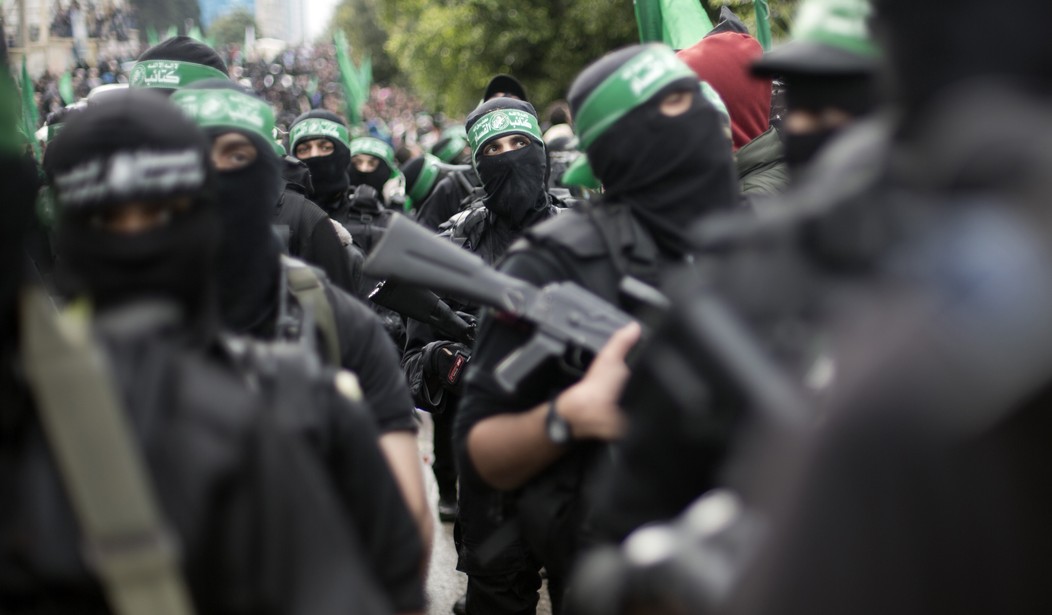Israeli Prime Minister Benjamin Netanyahu dissolved his six-member war cabinet on Monday, a move widely expected after the resignation of former general and chief political rival Benny Gantz.
Netanyahu will now rely on a small circle of advisors to develop war polity, including Defence Minister Yoav Gallant and Strategic Affairs Minister Ron Dermer. The move comes as Hezbollah is ramping up attacks on Israel's northern border.
Joe Biden, anxious to prevent a wider war from starting, sent U.S. special envoy Amos Hochstein to visit Jerusalem. As the Gaza War is apparently winding down, the last thing Biden wants is another conflict in the Middle East, only this one would have the potential of drawing Iran and other nations in.
But Hezbollah is playing the same game they played in the early weeks of the war. They want to take Israel all the way to the edge of conflict before stepping back. It's a psychological ploy that the terrorists have been playing on and off for decades and is designed to wear down the Israeli government as well as keep their U.S. ally on edge.
Tens of thousands of civilians on both sides of the Israel-Lebanese border have been evacuated as the long, simmering conflict between the two enemies threatens to ignite into war. Hezbollah has been conducting daily missile attacks while Israel retaliates.
"The current state of affairs is not a sustainable reality," government spokesperson David Mencer told a briefing.
The last thing Hezbollah wants is another war with Israel. Netanyahu knows this which is why he's content to play the whack-a-terrorist game with Hezbollah.
Hochstein called for the “urgent” de-escalation of cross-border exchanges of fire. “The conflict… between Israel and Hezbollah has gone on for long enough,” the presidential envoy said while visiting Beirut. “It’s in everyone’s interest to resolve it quickly and diplomatically — that is both achievable and it is urgent.”
Hochstein met with Lebanese parliament speaker Nabih Berri, a hard-line Shiite and close ally of Hezbollah in parliament. “Speaker Berri and I had a very good discussion,” Hochstein said after meeting the Lebanese terrorist ally. Did he really believe it would do any good?
Also for our VIPs: Hamas Doesn't Know How Many Hostages Are Still Alive
Meanwhile, the battle for Rafah is proceeding as well as can be expected, given the limitations placed on the IDF by Joe Biden. Israel is making every effort to avoid civilian casualties and, except for the hostage rescue operation, has managed to keep civilian deaths to a minimum. Given that Hamas is hiding behind civilians, it's an extraordinary effort to move that many civilians out of the way before initiating major combat.
The IDF on Monday said that its Division 162 has defeated half of Hamas’s battalions in Rafah, including killing at least 550 terrorists, as well as destroyed around 200 tunnel shafts, and eliminated the terror group’s last major rocket inventory.
Further, the IDF said that within a couple of weeks it would likely be in control of all of Rafah and that the final battles with the remaining two Hamas battalions in parts of Tel al-Sultan and the eastern part of Shabura are already underway.
In addition, the IDF said that the tunnel network in Rafah, especially near the Philadelphi Corridor with Egypt has been found to be even more complex than those found in Khan Yunis, Jabaliya, and the military quarter of Gaza City.
Currently, the IDF says Division 162, commanded by Brig. Gen. Itzik Cohen, has already achieved operation control of over 60-70% of all of Rafah with all of the 1.4 million or so civilians having long fled to al-Muwasi on the coast, central Gaza and Khan Yunis.
The IDF says it has killed at least 550 Hamas terrorists and probably more, given that many of the buildings they were hiding in have been flattened. Most of the 6-8,000 Hamas fighters left Rafah along with the civilian population.
Hamas will likely attempt some kind of major terrorist attack with whatever forces they have left just to show they're still kicking. But their entire leadership and infrastructure have been smashed, which makes it very difficult to mount any kind of offensive operation.










